November 14 stands as one of history’s most eventful days, witnessing the rise and fall of empires, groundbreaking discoveries, and moments that shaped our modern world across centuries of human achievement.
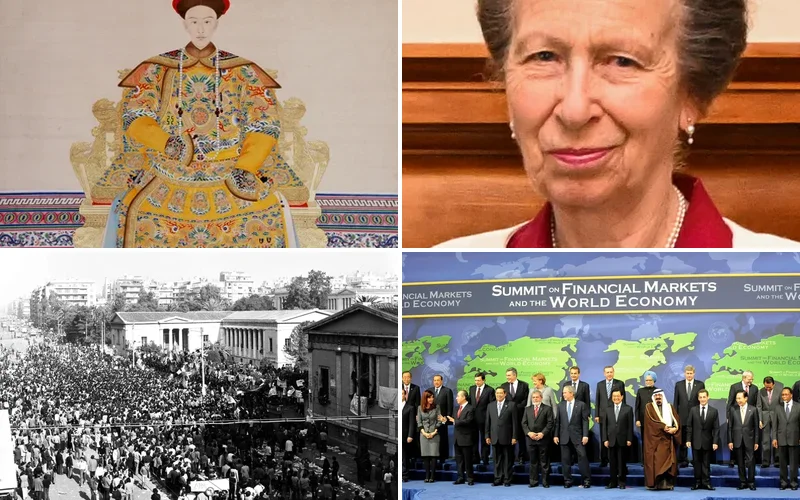
Politics and Government Events on November 14
1918 – Provisional National Assembly of Czechoslovakia Meets
The newly formed republic of Czechoslovakia convened its first Provisional National Assembly to draft a constitution for the emerging nation. Delegates gathered in Prague to establish the fundamental framework of democratic governance.
The assembly’s work would prove crucial in legitimizing Czechoslovakia’s independence from the Austro-Hungarian Empire. Their constitutional deliberations laid the groundwork for the nation’s democratic institutions and civil liberties.
1979 – President Carter Freezes Iranian Assets
President Jimmy Carter issued Executive Order 12170, freezing all Iranian assets held in United States banks and financial institutions. This decisive economic action responded directly to the ongoing hostage crisis at the American embassy in Tehran.
The asset freeze represented approximately $8 billion in Iranian government funds and marked a significant escalation in diplomatic tensions. This financial pressure tactic would remain in place throughout the 444-day hostage ordeal.
1991 – Cambodian Prince Sihanouk Returns from Exile
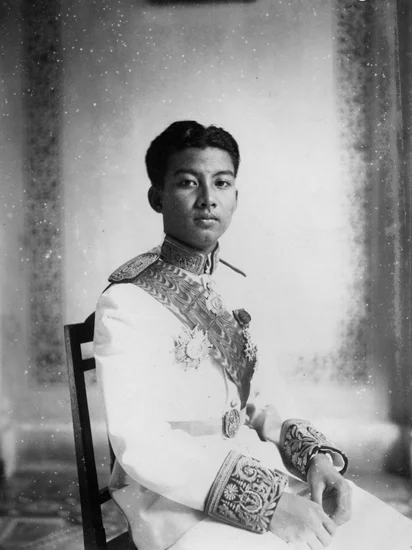
Prince Norodom Sihanouk triumphantly returned to Phnom Penh after thirteen years of forced exile during the Khmer Rouge era. Thousands of Cambodians lined the streets to welcome back their former monarch and symbol of national unity.
His return marked a pivotal moment in Cambodia’s transition toward peace and democratic governance. Sihanouk’s presence provided legitimacy to ongoing negotiations aimed at ending decades of civil war and foreign occupation.
1920 – Communist Party of Spain Founded
Spanish leftist militants established the Communist Party of Spain and published the inaugural edition of their newspaper Mundo Obrero. The party’s formation represented the consolidation of various socialist and anarchist factions under Marxist ideology.
The new organization would play a significant role in Spanish politics throughout the turbulent 20th century. Their influence would prove particularly crucial during the Spanish Civil War and the eventual transition to democracy.
1971 – Athens Polytechnic Uprising Begins
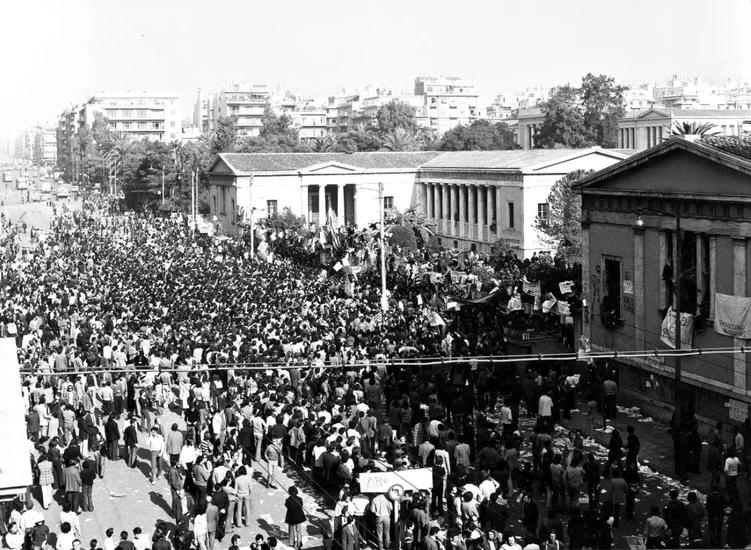
Students at the Athens Polytechnic launched a massive demonstration against Greece’s military junta, marking the beginning of widespread popular resistance. The uprising represented the largest challenge to the colonels’ authoritarian rule since their 1967 coup.
The student-led movement would inspire similar protests across Greece and internationally. Their brave stand against dictatorship ultimately contributed to the junta’s collapse and Greece’s return to democratic governance.
Military and Naval History on November 14
1940 – Luftwaffe Devastates Coventry
German bombers launched a devastating night raid against the English city of Coventry, destroying the medieval cathedral and much of the city center. The attack killed over 550 civilians and left thousands homeless in one of the war’s most destructive air raids.
The bombing introduced the term “Coventrate” into German military vocabulary, describing the complete destruction of a city. The attack shocked the British public but ultimately strengthened their resolve to continue fighting against Nazi Germany.
1965 – Battle of Ia Drang Begins
American and North Vietnamese forces clashed in the first major battle between regular troops in the Vietnam War. The engagement marked a significant escalation in the conflict as both sides committed substantial military resources.
The battle would last several days and demonstrate the effectiveness of helicopter-based air mobility tactics. The fierce fighting provided both sides with crucial lessons about jungle warfare and modern military strategy.
1941 – HMS Ark Royal Sinks
The British aircraft carrier HMS Ark Royal succumbed to torpedo damage inflicted by German submarine U-81 the previous day. The ship’s loss represented a significant blow to Royal Navy operations in the Mediterranean theater.
Despite heroic damage control efforts, the carrier could not be saved and sank while under tow to Gibraltar. Her loss demonstrated the continuing threat posed by German U-boats to British naval supremacy.
2001 – Northern Alliance Captures Kabul
Afghan Northern Alliance fighters successfully captured the capital city of Kabul from retreating Taliban forces. The victory marked a crucial turning point in the early stages of the War in Afghanistan.
The alliance’s rapid advance surprised many observers and demonstrated the effectiveness of American air support combined with local ground forces. The capture of Kabul represented the first major territorial gain in the campaign against the Taliban regime.
Science and Discovery Milestones on November 14
1969 – Apollo 12 Launches to the Moon
NASA successfully launched Apollo 12, the second crewed mission destined for the lunar surface, from Kennedy Space Center in Florida. The crew overcame early challenges when their Saturn V rocket was struck by lightning during ascent.
The mission aimed to demonstrate precision landing capabilities by touching down near the unmanned Surveyor 3 probe. Apollo 12’s success proved that lunar exploration could be conducted with scientific precision and reliability.
1971 – Mariner 9 Enters Mars Orbit
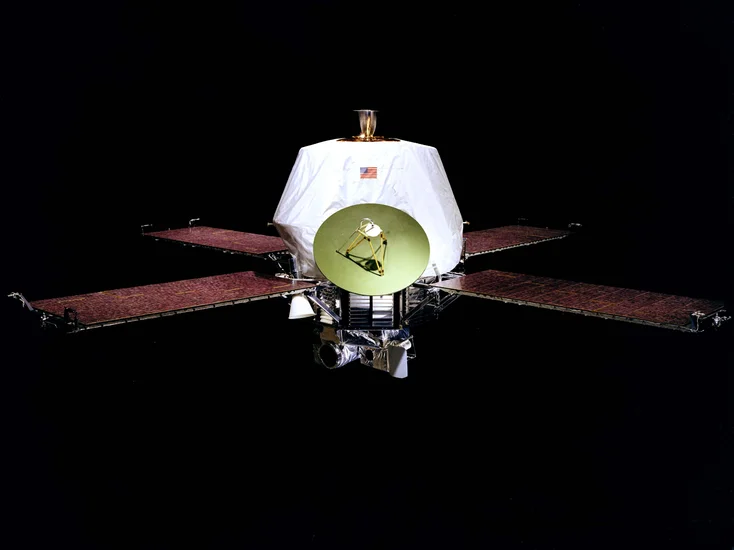
NASA’s Mariner 9 spacecraft successfully entered orbit around Mars, becoming the first artificial satellite of another planet. The probe arrived during a planet-wide dust storm that initially obscured surface features from observation.
As the dust settled, Mariner 9 revolutionized our understanding of Mars by revealing massive volcanoes, deep canyons, and evidence of ancient water flow. The mission’s discoveries fundamentally changed scientific perspectives on planetary geology and the possibility of past life on Mars.
2003 – Astronomers Discover Sedna

Astronomers announced the discovery of Sedna, a distant trans-Neptunian object located in the outer reaches of our solar system. The dwarf planet’s extremely elliptical orbit takes it far beyond Neptune’s influence into the Oort Cloud region.
Sedna’s discovery challenged existing theories about solar system formation and the distribution of objects in its outer regions. The finding suggested that our solar system’s boundaries extend much farther than previously imagined.
1967 – First Laser Patent Granted
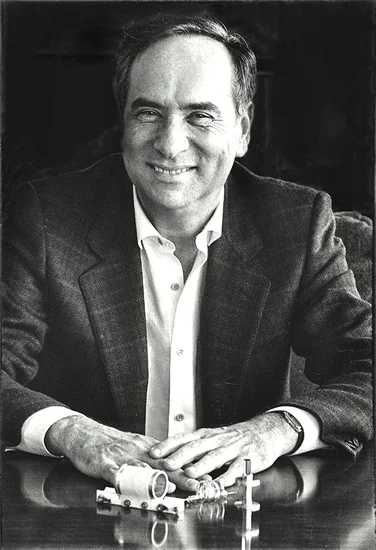
American physicist Theodore Maiman received a patent for his revolutionary ruby laser systems, officially recognizing the world’s first operational laser technology. His invention opened entirely new fields in science, medicine, and technology.
The patent validation confirmed the laser’s potential for countless applications from surgical procedures to communications systems. Maiman’s breakthrough would transform industries and enable technological advances that seemed impossible just years earlier.
Cultural and Arts Events on November 14
1952 – First UK Singles Chart Published
The New Musical Express published Britain’s first regular singles chart, revolutionizing how popular music success was measured and reported. The chart tracked record sales across the United Kingdom and established a new standard for the music industry.
This innovation transformed how artists, record labels, and radio stations approached popular music promotion and programming. The chart system would become a fundamental part of British popular culture and influence music industry practices worldwide.
1914 – Joensuu City Hall Inaugurated
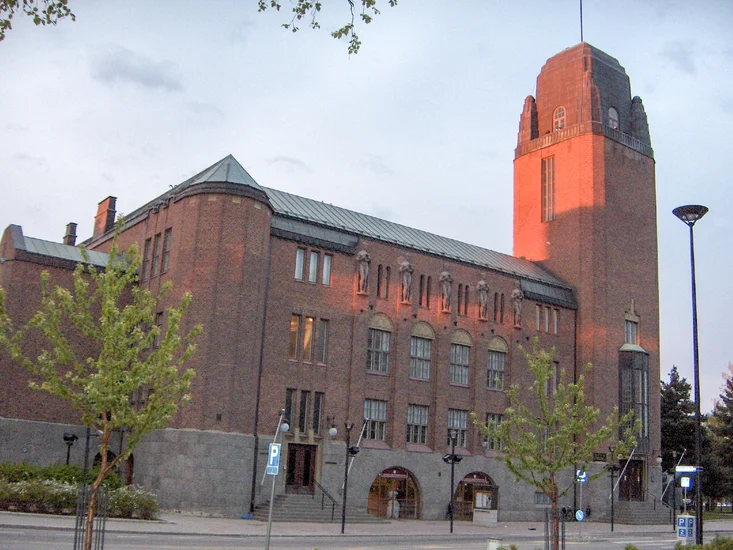
The magnificent Joensuu City Hall, designed by renowned Finnish architect Eliel Saarinen, officially opened its doors to the public. The building exemplified the National Romantic architectural movement that was sweeping through Finland during its struggle for independence.
Saarinen’s design incorporated traditional Finnish motifs with modern architectural principles, creating a structure that symbolized national identity. The city hall became a model for public buildings throughout Finland and established Saarinen’s international reputation.
1922 – BBC Radio Service Begins
The British Broadcasting Company launched its first radio transmissions, marking the beginning of public broadcasting in the United Kingdom. The service initially operated from Marconi House in London with limited programming for a small audience of radio enthusiasts.
This modest beginning would evolve into one of the world’s most influential broadcasting organizations. The BBC’s establishment fundamentally changed how information and entertainment reached British households, creating new forms of shared national experience.
1920 – First Pesäpallo Game Played

Finland’s national sport of pesäpallo was played for the first time at Kaisaniemi Park in Helsinki, introducing Lauri Pihkala’s unique adaptation of baseball. The game incorporated distinctly Finnish elements while maintaining the strategic complexity of its American inspiration.
Pihkala’s invention would become deeply embedded in Finnish sporting culture and national identity. The sport’s development demonstrated how countries could adapt foreign games to create new traditions that reflected their own cultural values.
Religious and Social Events on November 14
1960 – Ruby Bridges Integrates School
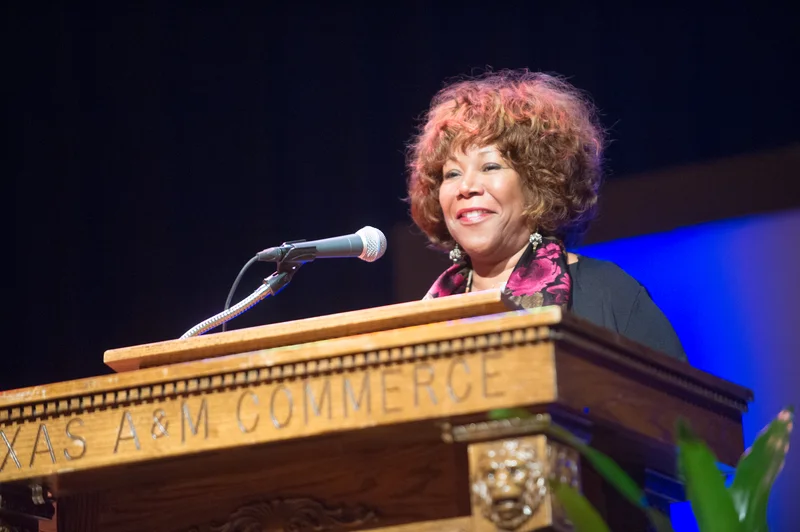
Six-year-old Ruby Bridges courageously walked through angry crowds to become the first Black child to attend the all-white William Frantz Elementary School in New Orleans. Her historic first day was protected by federal marshals as she faced hostile protesters.
Ruby’s brave act of attending school became a powerful symbol of the civil rights movement’s determination to end educational segregation. Her courage inspired countless Americans and demonstrated that even the youngest citizens could help change history.
1973 – Princess Anne’s Royal Wedding
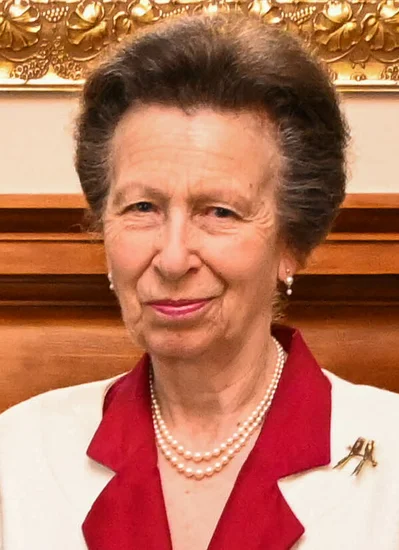
Princess Anne married Captain Mark Phillips in a spectacular ceremony at Westminster Abbey, watched by millions of television viewers worldwide. The royal wedding provided a moment of national celebration and pageantry for the British people.
The ceremony showcased British royal traditions while reflecting the changing social attitudes of the 1970s. The wedding’s global television coverage demonstrated the continuing international fascination with the British royal family.
1981 – Lech Wałęsa Released from Internment
Polish labor leader Lech Wałęsa was released after eleven months of internment near the Soviet border, where he had been held since the imposition of martial law. His release marked a significant moment in Poland’s struggle for democratic reform and workers’ rights.
Wałęsa’s freedom reinvigorated the Solidarity movement and provided hope for millions of Poles seeking political change. His release demonstrated the Polish government’s inability to completely suppress the democratic aspirations of its citizens.
Business and Economic Events on November 14
1995 – US Government Shutdown Begins
A budget standoff between Democrats and Republicans in Congress forced the federal government to temporarily close national parks and museums while operating most offices with skeleton crews. The shutdown affected hundreds of thousands of government employees and disrupted public services.
The political crisis highlighted deep partisan divisions over federal spending priorities and the role of government in American society. The shutdown’s impact on ordinary Americans ultimately forced both parties to seek compromise solutions.
2008 – First G-20 Economic Summit Opens
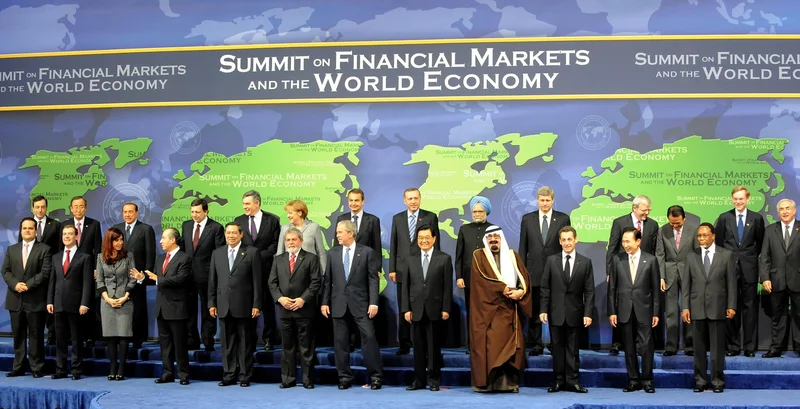
World leaders gathered in Washington, D.C., for the inaugural G-20 economic summit, addressing the global financial crisis that had emerged from the American subprime mortgage collapse. The meeting represented unprecedented international cooperation in responding to economic emergency.
The summit established the G-20 as a primary forum for international economic coordination, replacing the smaller G-8 group. The meeting’s outcomes would influence global economic policy for years to come as nations worked to prevent future financial crises.
1977 – British Parliament Debates Devolution
Labour MP Tam Dalyell posed what would become known as the West Lothian question during a House of Commons debate on Scottish devolution. His inquiry highlighted the constitutional complexities of granting self-governance to Scotland while maintaining Scottish representation in Westminster.
Dalyell’s question identified a fundamental paradox in British constitutional arrangements that would influence devolution debates for decades. The issue remains relevant today as Scotland and other parts of the United Kingdom continue to seek greater autonomy.
Transportation and Infrastructure on November 14
1910 – First Takeoff from a Ship
Aviator Eugene Burton Ely achieved the first successful aircraft takeoff from a naval vessel, launching his Curtiss pusher from a makeshift wooden platform on the USS Birmingham. The historic flight in Hampton Roads, Virginia, lasted only a few minutes but revolutionized naval aviation.
Ely’s daring demonstration proved that aircraft could operate from ships, opening new possibilities for naval warfare and reconnaissance. His achievement laid the foundation for aircraft carrier development and fundamentally changed naval strategy for the 20th century.
1938 – Lions Gate Bridge Opens

The magnificent Lions Gate Bridge opened to traffic, connecting Vancouver to the North Shore region across the Burrard Inlet. The suspension bridge’s construction represented a major engineering achievement and provided crucial transportation links for the growing metropolitan area.
The bridge’s opening facilitated suburban development on the North Shore and became an iconic symbol of Vancouver’s skyline. Its construction demonstrated Canada’s engineering capabilities and marked a significant milestone in British Columbia’s transportation infrastructure development.
1970 – Southern Airways Flight 932 Crashes

Southern Airways Flight 932 crashed into the mountains near Huntington, West Virginia, killing 75 people including nearly the entire Marshall University football team. The tragedy devastated the university community and the city of Huntington.
The crash had profound effects on Marshall University’s athletic program and the broader community’s sense of identity. The disaster would eventually inspire the rebuilding of the football program and become a symbol of resilience in the face of overwhelming loss.
1990 – Alitalia Flight 404 Crashes
Alitalia Flight 404 crashed into Stadlerberg Mountain near Weiach during its approach to Zurich Airport, killing all 46 people aboard. The accident occurred in poor weather conditions and highlighted the dangers of mountain approaches to major airports.
The crash investigation led to improved safety protocols for aircraft operating in mountainous terrain and adverse weather conditions. The tragedy reinforced the importance of advanced navigation systems and pilot training for challenging airport approaches.
Sports and Recreation on November 14
1970 – Marshall University Football Team Tragedy

The Marshall University football team was virtually eliminated when Southern Airways Flight 932 crashed near Huntington, West Virginia, killing 75 people. The disaster included 37 football players, coaches, athletic department staff, and boosters returning from a game against East Carolina University.
The tragedy devastated the university’s athletic program and required years of rebuilding efforts. The story of Marshall’s recovery would later inspire the film “We Are Marshall” and become a symbol of how communities overcome devastating losses.
1957 – Apalachin Mafia Meeting Raided
Law enforcement officers raided a secret gathering of high-level organized crime figures at the rural Apalachin, New York estate of mobster Joseph Barbara. The unexpected police presence caught dozens of Mafia bosses attempting to flee through the surrounding woods.
The raid provided unprecedented insight into the structure and scope of organized crime in America. The arrests and subsequent investigations revealed the existence of a national crime syndicate and led to increased law enforcement efforts against organized crime.
1982 – Lech Wałęsa Released
Polish labor leader and future Nobel Prize winner Lech Wałęsa was released after eleven months of internment, during which he had been held for his leadership of the Solidarity movement. His release marked a significant moment in Poland’s struggle for democratic reform.
Wałęsa’s freedom reinvigorated the Solidarity movement and provided hope for millions of Poles seeking political change. His release demonstrated that the Polish government could not completely suppress the democratic aspirations of its citizens.
Notable Births on November 14
1948 – Charles III, King of the United Kingdom
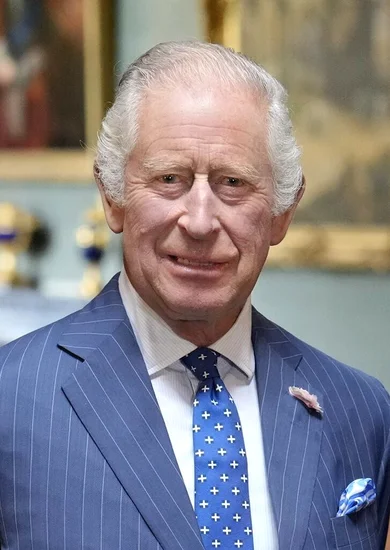
Prince Charles Philip Arthur George was born at Buckingham Palace, destined to become Britain’s longest-serving heir apparent. His birth secured the succession of the House of Windsor and marked the beginning of a life dedicated to public service.
Charles would spend over seven decades preparing for kingship, becoming deeply involved in environmental causes and architectural preservation. His eventual accession to the throne in 2022 represented the culmination of a lifetime of royal duty and public engagement.
1954 – Condoleezza Rice, American Secretary of State
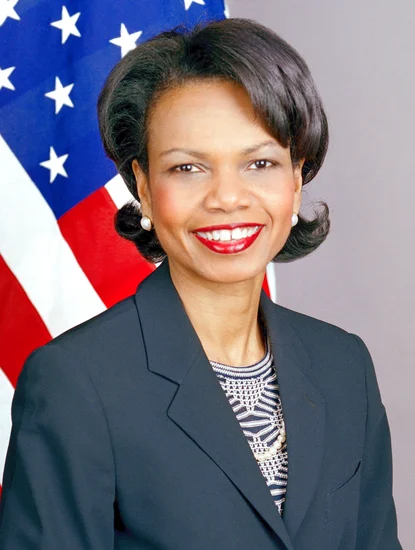
Condoleezza Rice entered the world in Birmingham, Alabama, during the height of the civil rights era. Her exceptional academic achievements would eventually lead her to become the first African American woman to serve as Secretary of State.
Rice’s career encompassed academia, government service, and international diplomacy at the highest levels. Her appointment as Secretary of State represented a significant milestone in American political history and international relations.
1906 – Louise Brooks, American Actress
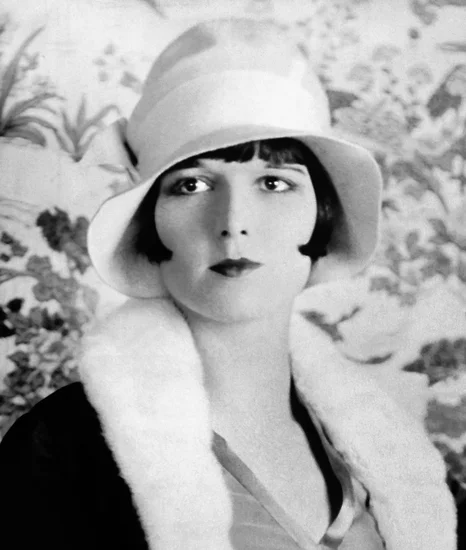
Louise Brooks was born in Cherryvale, Kansas, and would become one of the most iconic actresses of the silent film era. Her distinctive bob haircut and naturalistic acting style revolutionized cinema performance and fashion.
Brooks’ influence extended far beyond her relatively brief career, inspiring generations of filmmakers and fashion designers. Her work in German cinema during the late 1920s created some of the most memorable images in film history.
1975 – Travis Barker, American Drummer

Travis Barker was born in Fontana, California, and would become one of the most influential drummers in punk rock and alternative music. His work with Blink-182 helped define the sound of late 1990s pop-punk music.
Barker’s innovative drumming style incorporated elements from various musical genres, from punk to hip-hop. His survival of a 2008 plane crash and subsequent recovery became an inspiring story of resilience and determination.
1907 – Astrid Lindgren, Swedish Author
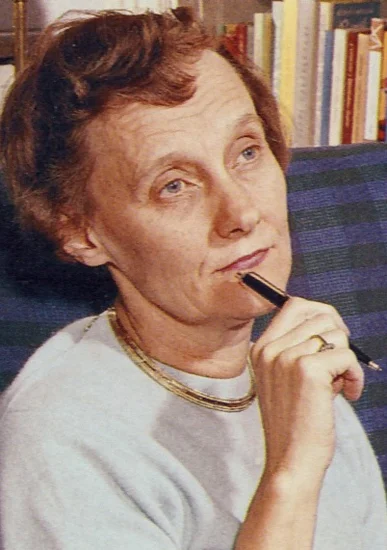
Astrid Lindgren was born on a farm in Vimmerby, Sweden, and would become one of the world’s most beloved children’s authors. Her creation of Pippi Longstocking revolutionized children’s literature with its strong, independent female protagonist.
Lindgren’s books have been translated into dozens of languages and have sold millions of copies worldwide. Her stories championed children’s rights and imagination while addressing serious social issues with humor and compassion.
1925 – Boutros Boutros-Ghali, Egyptian Diplomat

Boutros Boutros-Ghali was born in Cairo, Egypt, into a prominent Coptic Christian family with a long tradition of public service. His multicultural background and legal training prepared him for a distinguished career in international diplomacy.
Boutros-Ghali would serve as the sixth Secretary-General of the United Nations from 1992 to 1996. His tenure coincided with significant global challenges, including the end of the Cold War and emerging humanitarian crises worldwide.
1969 – Butch Walker, American Musician

Butch Walker was born in Cartersville, Georgia, and would become a successful musician, songwriter, and producer. His work spans multiple genres, from punk rock to country music, demonstrating remarkable versatility and creativity.
Walker’s production work has helped shape the sound of numerous successful artists while his own performances have earned critical acclaim. His ability to blend different musical styles has made him one of the most sought-after producers in the industry.
Notable Deaths on November 14
1915 – Booker T. Washington, American Educator
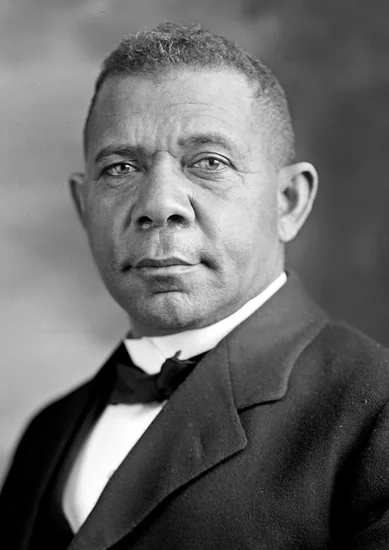
Booker T. Washington, the prominent African American educator and civil rights leader, died at Tuskegee Institute in Alabama. His philosophy of vocational education and gradual progress toward racial equality had influenced American race relations for decades.
Washington’s leadership of Tuskegee Institute transformed it into a premier center for African American education and economic development. His autobiography “Up from Slavery” became one of the most influential books of the Progressive Era.
1946 – Manuel de Falla, Spanish Composer
Manuel de Falla, Spain’s most prominent classical composer, died in exile in Argentina after fleeing the Spanish Civil War. His compositions, including “The Three-Cornered Hat” and “Nights in the Gardens of Spain,” captured the essence of Spanish musical culture.
Falla’s work successfully integrated Spanish folk music traditions with contemporary classical composition techniques. His influence on Spanish music and his international reputation helped establish Spain as a significant force in 20th-century classical music.
1991 – Tony Richardson, British Film Director
Tony Richardson, the acclaimed British film director and key figure in the “kitchen sink realism” movement, died of complications from AIDS. His films, including “Tom Jones” and “The Loneliness of the Long Distance Runner,” challenged conventional British cinema.
Richardson’s work helped establish British cinema as a significant artistic force during the 1960s cultural revolution. His innovative filming techniques and focus on working-class subjects influenced a generation of filmmakers worldwide.
1908 – Guangxu Emperor of China

The Guangxu Emperor of China died under mysterious circumstances at the age of 37, ending a troubled reign marked by foreign intervention and internal reform struggles. His death occurred just one day before that of the powerful Empress Dowager Cixi.
The emperor’s attempts at modernization and reform had been consistently blocked by conservative forces within the Qing court. His death marked the end of the last serious attempt to reform the Chinese imperial system before its eventual collapse.
1996 – Joseph Bernardin, American Cardinal

Cardinal Joseph Bernardin, the influential Archbishop of Chicago, died after a courageous battle with pancreatic cancer. His progressive leadership on social justice issues and his dignified response to personal challenges made him one of America’s most respected religious leaders.
Bernardin’s “seamless garment” approach to Catholic social teaching connected various life issues from abortion to capital punishment. His interfaith dialogue efforts and advocacy for the poor established him as a moral voice that transcended religious boundaries.
2016 – Gwen Ifill, American Journalist

Gwen Ifill, the groundbreaking television journalist and political commentator, died of complications from endometrial cancer. Her work as a moderator of vice presidential debates and co-anchor of PBS NewsHour made her one of the most trusted voices in American journalism.
Ifill’s career broke numerous barriers for women and African Americans in broadcast journalism. Her incisive political analysis and commitment to journalistic integrity influenced how Americans understood politics and government.
Holidays and Observances on November 14
World Diabetes Day
World Diabetes Day serves as the primary global awareness campaign for diabetes mellitus, established by the International Diabetes Federation and the World Health Organization. The date commemorates the birthday of Frederick Banting, who co-discovered insulin along with Charles Best.
The observance aims to raise awareness about diabetes prevention, management, and the urgent need for improved access to diabetes care worldwide. Activities include educational programs, screening events, and advocacy efforts to support the millions of people living with diabetes.
Day of the Colombian Woman
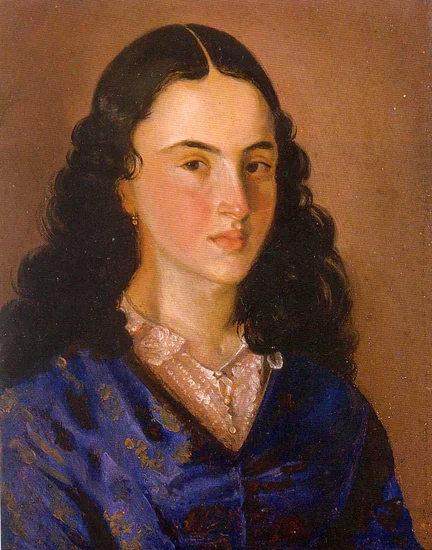
Colombia celebrates the Day of the Colombian Woman, commemorating the 150th anniversary of the death of independence heroine Policarpa Salavarrieta. The Congress of Colombia officially declared this observance in 1967 to honor women’s contributions to the nation’s history.
The day recognizes both historical and contemporary achievements of Colombian women in politics, science, arts, and social development. Educational institutions and government agencies organize events highlighting women’s ongoing struggles for equality and recognition.
Children’s Day in India

India celebrates Children’s Day on the birthday of Jawaharlal Nehru, the country’s first Prime Minister, who was known for his love of children. The celebration moved from November 20 to November 14 after Nehru’s death to honor his memory and commitment to children’s welfare.
Schools across India organize special programs, cultural events, and activities focused on children’s rights and education. The day emphasizes the importance of nurturing young minds and ensuring every child has access to quality education and healthcare.
Mobile Brigade Day in Indonesia
Indonesia observes Mobile Brigade Day to honor the country’s elite police tactical unit, known as Brimob. The day commemorates the establishment of this specialized force and recognizes their contributions to national security and law enforcement.
The observance includes ceremonial parades, demonstrations of tactical capabilities, and public safety education programs. The day highlights the important role of specialized law enforcement units in maintaining public order and protecting citizens.
